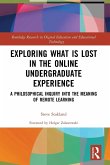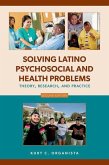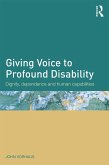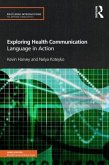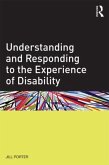The COVID-19 pandemic significantly impacted all sectors of society and the world at large. The World Health Organization (2022) found global confirmed cases of people with coronavirus disease 2019 (COVID-19), also known as severe acute respiratory syndrome coronavirus 2 (SARS-CoV-2), had reached over 536 million with over 6.3 million reported deaths from this disease. As of April 2023, an estimated 104 million Americans had been infected with COVID-19 (Centers for Disease Control and Prevention, 2023b). Most people who have been infected with COVID-19 recover within a few days or few weeks after the initial infection with holistic support, treatment, rest, and gradual return to daily activities (Greenhalgh et al., 2020). However, a significant number of people do not recover and continue to experience enduring health problems and complications often for weeks, months, or longer after the onset of the original virus (Ahmad et al., 2022; Blitshteyn & Whitelaw, 2021; Centers for Disease Control and Prevention, 2022c; Chen et al., 2021; Hernandez-Romieu at al., 2022; Sathish et al., 2021; Wong & Weitzer, 2021). According to a recent data analyzed by the CDC's National Center for Health Statistics, about 7.5% of adults in the United States (1 in every 13 people) continue to suffer lingering symptoms of COVID-19, often referred to as "long COVID" (Centers for Disease Control and Prevention, 2022). These individuals are known as COVID long-haulers; the long-term symptoms are collectively referred to as 'long COVID' or post-COVID conditions (PCC) (Soriano et al., 2022). Many long COVID patients experience persistent and potentially debilitating post-COVID symptoms, which puts them at an increased risk for chronic medical conditions or long-term disability due to neurological or physical impairment (CDC, 2020b; Couzin-Frankel, 2020; Office for National Statistics, 2021). Moreover, in addition to these physical detriments, a significant proportion struggle with mental health issues such as anxiety disorders and depression (McCorkell et al., 2020; Schou et al., 2021; Taquet et al., 2021). This is not surprising, considering that the acquisition of a chronic illness or disability (CID) is life-changing and can have an enormous impact on an individual's mental health and quality of life. Given the increasing number of individuals and their families impacted by the effects of long COVID, it is evident that this condition requires sustained attention and research.
Bitte wählen Sie Ihr Anliegen aus.
Rechnungen
Retourenschein anfordern
Bestellstatus
Storno



